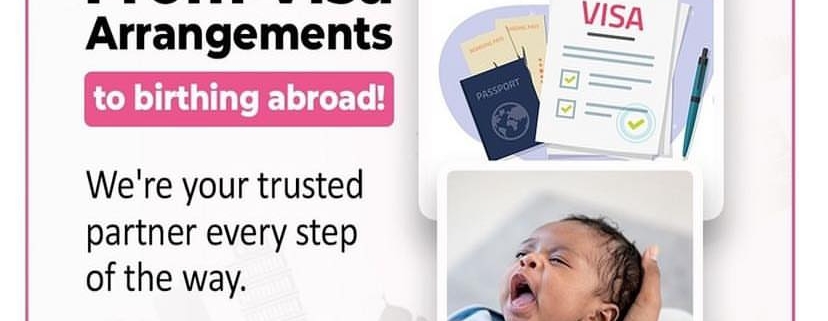What Nigerian Expectant Mothers Need to Know Before and After Going on Birth Tourism
What Nigerian Expectant Mothers Need to Know Before and After Going on Birth Tourism
Planning to have your baby abroad? It’s an exciting decision, but it comes with lots of preparation! From choosing the right country to sorting out paperwork, you’ll need a clear plan to make your birth tourism journey smooth. Whether you’re eyeing the USA, Brazil, Canada, Barbados, or St. Kitts and Nevis, here’s everything you need to know before and after giving birth abroad.
Before Traveling: Setting the Foundation
1. Choose the Right Country
Different countries offer unique perks for birth tourism. For example:
USA: Your baby automatically gets U.S. citizenship.
Canada: Canadian citizenship for your baby and access to world-class healthcare.
Brazil: Citizenship for your baby and a pathway to residency for parents.
Barbados & St. Kitts and Nevis: Lesser-known gems with friendly immigration processes and citizenship benefits.
Research each destination to see which aligns with your goals.
2. Sort Out Your Visa
Getting a visa is a big step, and every country has its rules. For instance:
The USA requires a B2 visitor visa, and you must prove you can pay for your medical bills.
Canada might ask for proof of funds and intent to return after your visit.
Apply early, gather all the necessary documents, and be honest about your purpose.
3. Budgeting
Birth tourism isn’t cheap. Besides medical bills, think about:
Flights and accommodation
Doctor’s fees and hospital charges
Post-delivery expenses like passports and baby care
It’s wise to over-budget to avoid surprises.
4. Pick the Right Hospital
Research hospitals and clinics in your chosen country. Check reviews, their maternity packages, and whether they’re experienced with international patients.
5. Plan Your Stay
You’ll likely need to arrive a few weeks before your due date. Plan your accommodation close to your hospital and ensure it’s baby-friendly.
After Giving Birth: What Happens Next?
1. Get Your Baby’s Documents
Once your baby is born, you’ll need to handle paperwork quickly. This usually includes:
Birth certificate
Passport
Citizenship documents (if applicable)
Each country has its process, so confirm what’s needed beforehand to avoid delays.
2. Healthcare for Baby and Mom
After delivery, ensure you and your baby get all necessary postnatal care. Some countries offer follow-up services for newborns, so take advantage of them.
3. Travel Back Home
Don’t rush the journey back to Nigeria. Give yourself enough time to heal and adjust to life with your newborn. When you’re ready, ensure you have your baby’s travel documents and any required vaccinations.
4. Explore Citizenship Benefits
If your baby is a citizen of the country where you gave birth, understand what benefits they’re entitled to. For instance, access to quality education, healthcare, and future residency options for the family.
5. Keep in Touch
It’s a good idea to maintain contact with the hospital or clinic in case you need medical records or follow-ups later.
A Few Extra Tips:
Learn basic phrases in the local language if English isn’t widely spoken.
Hire a Birth Services Officer or consultant to handle logistics if you’re feeling overwhelmed.
Planning a birth abroad is a bold and rewarding journey. By preparing well and staying informed, you can make the process smooth and joyful. If you’re ready to start this exciting chapter, take a deep breath and go for it you’ve got this!


